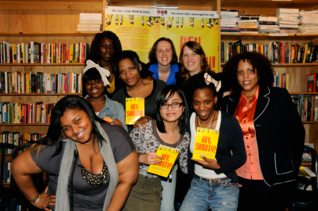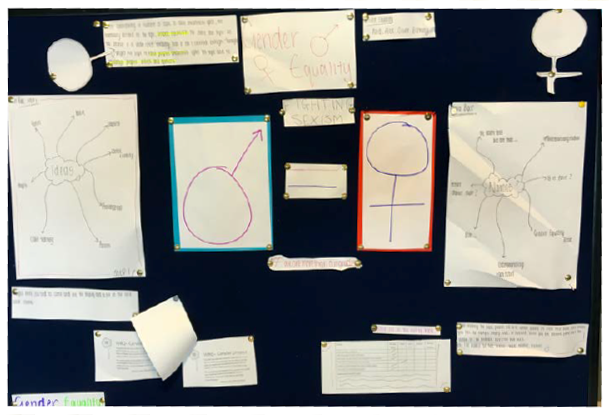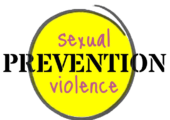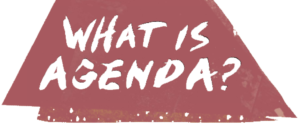Research means two things:
1) finding out what is said about your issue, investigating what is out there already. You want to make sure you really understand all sides so that you can prepare to design your campaign and deal with any potential opposition.
2) conducting original social science research, which can also be a tool to understand how the issue you care about directly impacts the folks in your community and provides evidence for why we need to take action.
Social science researchers investigate how people relate to one another and they often try to use their discoveries to make the world a fairer place. There are many different ways to research the social world, from interviews and surveys to focus groups and observations and also creative methods, like drawings, maps or digital storytelling.

The team of girl activists at Girls for Gender Equity, a feminist organization in New York City, conducted a massive research project interviewing and surveying teens about their experience of sexual harassment in their public high schools. They published their findings along with strategies to end harassment in their book, Hey Shorty: A Guide to Combating Sexual Harassment and Violence in Schools and on the Streets.
Four 10th grade students made a Flashcard Story about why schools should be doing more to address gender equality, violence against women and girls, and gender-based and sexual violence. To get some feedback from their project and campaign, they used a range of methods.
They designed a short tick-box questionnaire and included a space to add longer written comments. Staff and students were also invited to complete a ‘speech bubble’ on how their project made them feel (e.g. “happy, sad, shocked”). Asking everyone not to “write their name” on the forms ensured that all responses were anonymous – an important part of their research ethics.

Tips for doing research for your social justice project:
- Articulate a dynamic research question. A good research question explores something you actually do not know the answer to and need people’s voices and experiences to help you answer it.
- Read everything you can get your eyes on that is related to your question. What do you know about this issue? What do you not know? What do you know from academic literature? From pop culture? From school? From your friends? From your family? From tv, movies, YouTube and magazines?
- Check your own biases. We all have opinions and biases already about the issues we care about. How are you biased? What do you want the answer to be vs. what might you actually discover if you let yourself be surprised? How will you address your biases as you move through the research project?
- Design your research project to include the best tools to answer this question. Do you need hundreds of responses? Then an online survey might work. Do you want personal stories? Interviews or focus groups could be great. Are you asking folks to share sensitive experiences? Paintings or collages might help provide some good aesthetic distance so they can express themselves.
- Connect with partner organizations. Look for a local school, community-based organization where you could get access to the folks you want to participate in your research.
- Create a unique and powerful presentation. Think about how you want to share your findings and discoveries after you have collected and analyzed all your data. Do you want to make a performance? Design a poster? Give a public presentation?

For more resources on how young people are doing their own research to create social change see the Freechild.org project
Check out the SexGenLab and The Public Science Project for more ideas about youth and adults doing research together for social change.
The Open University Children’s Research Centre has many examples of how children and young people have been carrying our their own research into areas that interest them.
The Girl Guides have developed a resource for carrying out a community research project, including how to take action with your research findings.
The Open University Children’s Research Centre has many examples of how children and young people have been carrying our their own research into areas that interest them.
The Girl Guides have developed a resource for carrying out a community research project, including how to take action with your research findings.




